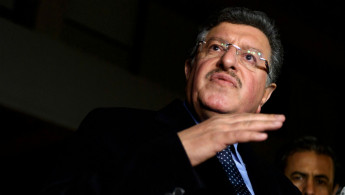Syrian opposition seek direct talks with regime
Syria's main opposition group said Wednesday it wanted face-to-face discussions with representatives of the regime of Bashar al-Assad, a day before the start of a new round of peace talks in Geneva.
"We ask for direct negotiations... It would save time and be proof of seriousness instead of negotiating in (separate) rooms," Salem al-Meslet, spokesman for the High Negotiations Committee (HNC) umbrella group, told AFP.
Speaking to reporters in the Geneva, al-Meslet said the opposition was hoping a “serious partner” in the new round of talks, and not just a regime attempt to buy more time.
"We have experience with this regime. They're not here to negotiate about a political transition, but they're here to buy time and commit more crimes in Syria. There's no trust in this regime," said al-Meslet.
During three previous rounds of talks in Geneva last year, the two sides never sat down at the same table, instead leaving UN mediator Staffan de Mistura to shuttle between them.
De Mistura on Wednesday did not seem very optimistic that Thursday’s talks could provide a breakthrough in the Syrian conflict, but hoped the two sides could build “momentum” towards a deal.
"Am I expecting a breakthrough? No, I am not expecting a breakthrough," de Mistura told reporters on the eve of UN-brokered negotiations in Geneva, adding that he hoped this round could lead to further talks on a political solution to the six-year conflict.
The Syrian conflict began when the Baath regime, in power since 1963 and led by President Bashar al-Assad, responded with military force to peaceful protests demanding democratic reforms during the Arab Spring wave of uprisings, triggering an armed rebellion fueled by mass defections from the Syrian army.
According to independent monitors, hundreds of thousands of civilians have been killed in the war, mostly by the regime and its powerful allies, and millions have been displaced both inside and outside of Syria.
The brutal tactics pursued mainly by the regime, which have included the use of chemical weapons, sieges, mass executions and torture against civilians have led to war crimes investigations.





 Follow the Middle East's top stories in English at The New Arab on Google News
Follow the Middle East's top stories in English at The New Arab on Google News


![MP Essam Diab's pursuit to block TikTok in Egypt has revived an already ongoing debate in the country. [Getty]](/sites/default/files/styles/image_330x185/public/1230748046.jpeg?h=a5f2f23a&itok=-8MqBLLC)